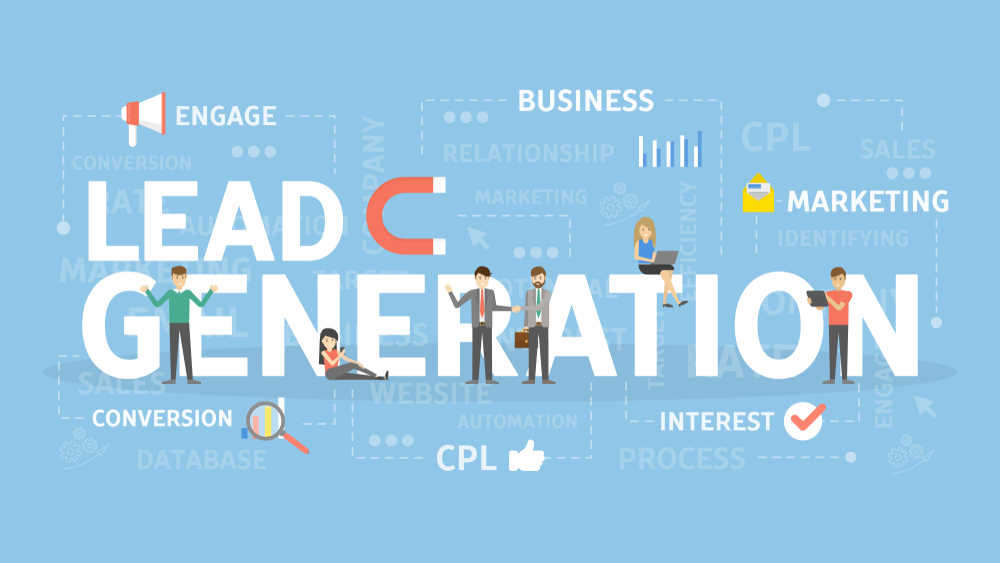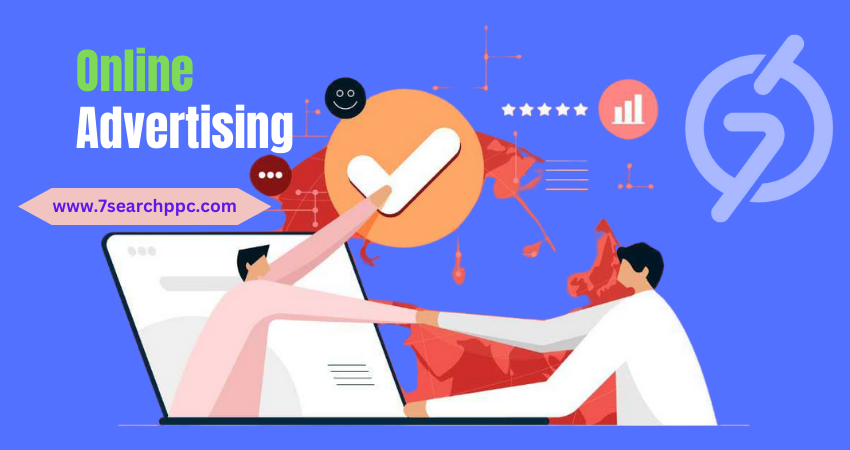In today’s fast-paced digital world, getting your business noticed online is more crucial than ever. Whether you’re a small business owner or a marketing professional, understanding where and how to advertise your business online can make all the difference. But with so many options out there, how do you know where to start? Let’s dive into the best places to advertise your business online and what makes each platform unique.
Understanding Online Advertising
What Makes Online Advertising Different from Traditional Advertising?
Unlike traditional advertising methods, such as billboards and print ads, online advertising allows you to target specific audiences with pinpoint accuracy. You can choose who sees your ads based on demographics, interests, behavior, and even past interactions with your brand.
Benefits of Online Advertising
- Targeted Reach: Reach your ideal customers where they spend their time online.
- Measurable Results: Track the performance of your ads in real-time.
- Cost-Effective: Control your budget and get more value for your money.
- Flexibility: Easily adjust your campaigns based on what’s working.

Types of Online Advertising
Search Engine Advertising
Google Ads
Google Ads is one of the most popular forms of online advertising, allowing businesses to appear in search results when potential customers search for relevant keywords.
Bing Ads
While not as widely used as Google, Bing Ads can still be a powerful tool, especially for reaching an older demographic or people in specific regions.
Social Media Advertising
Facebook Ads
Facebook’s vast user base makes it a go-to platform for businesses looking to online advertising. You can target users based on their interests, behaviors, and more.
Instagram Ads
Instagram is ideal for brands that rely on visual content. With Instagram Ads, you can create visually appealing campaigns that engage users.
LinkedIn Ads
For B2B businesses, LinkedIn Ads provide a unique opportunity to target professionals and decision-makers.
Display Advertising
Banner Ads
Banner ads are a traditional form of online advertising, displayed across various websites. They are often used for brand awareness campaigns.
Pop-ups and Interstitials
Pop-ups and interstitials are ads that appear on a webpage, grabbing the user’s attention. While effective, they should be used sparingly to avoid annoying potential customers.
Video Advertising
YouTube Ads
YouTube Ads allow businesses to reach potential customers through video content. With billions of users, YouTube is a powerful platform for advertising.
Social Media Video Ads
Video ads on platforms like Facebook, Instagram, and Twitter can also be highly effective, especially for short, engaging content.
Native Advertising
Sponsored Content
Sponsored content blends seamlessly with the surrounding content, making it less intrusive and more engaging for the user.
In-feed Ads
In-feed ads appear in the user’s newsfeed, often mimicking the format of regular posts, making them more likely to be seen and engaged with.
Types of Online Advertising on 7Search PPC
Text Ads
Text ads are simple yet effective. They consist of a headline, a brief description, and a call-to-action. These ads appear on search engine results pages (SERPs) and relevant websites, helping you reach your target audience with concise and compelling messages.
Banner Ads
Banner ads are visual advertisements displayed in various sizes and formats across websites. They can include images, text, and animations, making them eye-catching and engaging. Banner ads are great for brand awareness and driving traffic to your site.
Native Ads
Native ads blend seamlessly with the content of the website they appear on. They match the look and feel of the surrounding content, providing a non-disruptive user experience. Native ads are effective for increasing engagement and building trust with your audience.
Popunder Ads
Popunder ads open in a new browser window behind the current one. They are less intrusive than pop-up ads and can capture the user’s attention once they close or minimize their current window. Popunder ads are useful for generating leads and conversions.
In-Page Push Ads
In-page push ads are notifications that appear directly on the webpage, similar to push notifications on mobile devices. They are highly visible and can drive immediate action from users. These ads are ideal for time-sensitive promotions and announcements.
These diverse ad formats on 7Search PPC enable you to tailor your advertising strategy to your specific goals and audience preferences. Whether you’re looking to boost brand awareness, drive traffic, or increase conversions, 7Search PPC offers the tools you need to succeed.
Best Places to Advertise Your Business Online
Google Ads
Google Ads is often the first choice for businesses looking to advertise online.
Advantages of Google Ads
- Wide Reach: Google processes billions of searches daily, giving you access to a vast audience.
- Targeted Advertising: You can target specific keywords, demographics, and even times of day.
How to Create Effective Google Ads
- Use Relevant Keywords: Choose keywords that your target audience is likely to search for.
- Write Compelling Ad Copy: Make sure your ad copy is clear, concise, and highlights the benefits of your product or service.
- Test and Optimize: Continuously test different ad variations to see what works best.
Facebook Ads
Facebook Ads offer businesses the ability to reach a broad and diverse audience.
Why Facebook Ads Are Effective
- Detailed Targeting: Facebook allows you to target users based on their interests, behaviors, and demographics.
- Variety of Ad Formats: From image ads to video ads, Facebook offers various formats to suit your needs.
Tips for Creating Engaging Facebook Ads
- Use High-Quality Images: Visuals are key to catching users’ attention.
- Include a Clear Call-to-Action: Encourage users to take the next step, whether it’s visiting your website or making a purchase.
- Leverage User-Generated Content: Incorporating testimonials or reviews from real customers can increase trust and engagement.
Instagram Ads
Instagram Ads are a must for businesses that rely on visual content to promote their products or services.
The Power of Visual Content
- High Engagement Rates: Instagram users are highly engaged, making it an ideal platform for brands looking to build a strong online presence.
- Story Ads: Instagram Stories offer a unique way to connect with your audience in a more informal and personal way.
Strategies for Instagram Ads Success
- Focus on Aesthetics: Ensure that your ads are visually appealing and aligned with your brand’s style.
- Utilize Hashtags: Use relevant hashtags to increase the visibility of your ads.
- Experiment with Different Formats: Try out different ad formats, such as carousel ads or video ads, to see what resonates with your audience.
LinkedIn Ads
For B2B companies, LinkedIn Ads are an excellent choice.
Targeting Professionals with LinkedIn Ads
- Industry-Specific Targeting: LinkedIn allows you to target professionals based on their job title, industry, and more.
- Lead Generation: LinkedIn’s lead generation forms make it easy to capture valuable leads directly from your ads.
Best Practices for LinkedIn Ads
- Keep Your Copy Professional: LinkedIn is a professional network, so make sure your ad copy reflects that.
- Use Sponsored InMail: Sponsored InMail allows you to send personalized messages directly to LinkedIn users’ inboxes.
YouTube Ads
YouTube Ads are perfect for businesses looking to leverage video content to reach their audience.
Engaging Audiences with Video Content
- Massive Audience: With over 2 billion users, YouTube offers a vast audience for your ads.
- Skippable Ads: YouTube’s skippable ads allow viewers to skip ads after a few seconds, meaning only interested viewers will watch your full ad.
Tips for High-Conversion YouTube Ads
- Keep It Short and Sweet: Attention spans are short, so make sure your ads are concise and to the point.
- Highlight Your Unique Selling Proposition (USP): Clearly communicate what sets your product or service apart from the competition.
Twitter Ads
Twitter Ads can be a great way to reach users who are active and engaged on the platform.
Quick Engagement with Twitter Ads
- Real-Time Marketing: Twitter is known for real-time conversations, making it an excellent platform for time-sensitive campaigns.
- Promoted Tweets: Promoted Tweets appear in users’ timelines, making them highly visible.
Crafting Tweets that Convert
- Keep It Short: Twitter’s character limit means your ad copy needs to be concise and impactful.
- Use Trending Hashtags: Incorporate trending hashtags to increase the visibility of your ads.
Emerging Trends in Online Advertising
Influencer Marketing
Influencer marketing involves partnering with influencers who have a strong online presence to promote your products or services. This can be especially effective on platforms like Instagram and YouTube.
Programmatic Advertising
Programmatic advertising uses automation to buy and sell ad space, allowing for more efficient and targeted ad placements.
Shoppable Posts
Shoppable posts allow users to purchase products directly from social media posts, streamlining the customer journey and increasing conversions.
How to Choose the Right Online Advertising Platform for Your Business
Define Your Audience
Understand who your target audience is and where they spend their time online.
Consider Your Budget
Different platforms have different costs associated with them. Choose a platform that fits within your budget while still offering a good return on investment.
Align with Your Business Goals
Your choice of advertising platform should align with your overall business goals. For example, if brand awareness is your goal, platforms like Facebook or Instagram may be more suitable.
Conclusion
Online advertising offers a multitude of options for businesses looking to reach their target audience. From Google Ads to Instagram and LinkedIn, there’s a platform for every business and budget. The key is to understand the strengths of each platform and how they align with your business goals. As online advertising continues to evolve, staying up-to-date with the latest trends and best practices will ensure that your campaigns remain effective and competitive.
FAQs
What is the most cost-effective online advertising platform?
Ans. The most cost-effective platform depends on your business goals and target audience. However, Google Ads and Facebook Ads are often cited as providing a good return on investment.
How do I measure the success of my online ads?
Ans. Success can be measured through various metrics such as click-through rate (CTR), conversion rate, and return on ad spend (ROAS).
Can small businesses benefit from online advertising?
Ans. Absolutely! Online advertising is highly scalable, making it accessible to businesses of all sizes.
What are the biggest mistakes to avoid in online advertising?
Ans. Common mistakes include not targeting the right audience, neglecting to optimize ads, and not tracking performance metrics.
How often should I update my online ads?
Ans. It’s important to regularly review and update your ads based on performance data. This could be as frequently as every couple of weeks or once a month, depending on your campaign.




